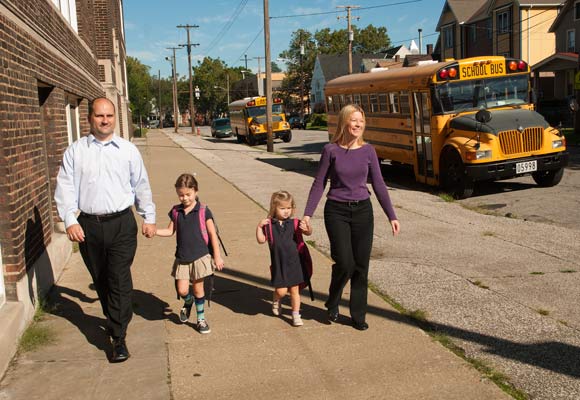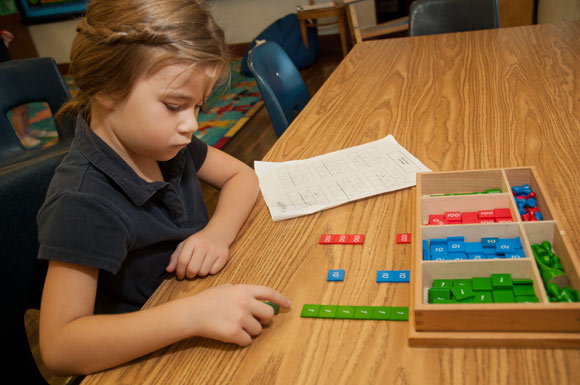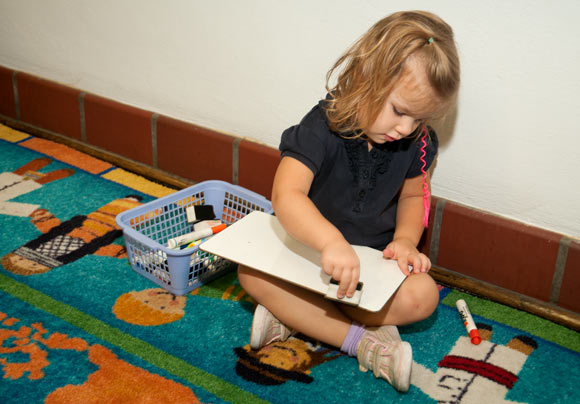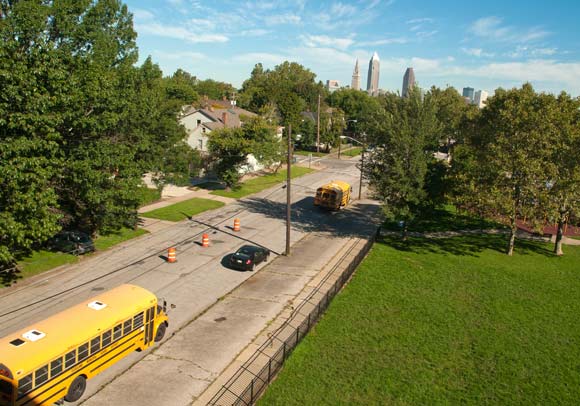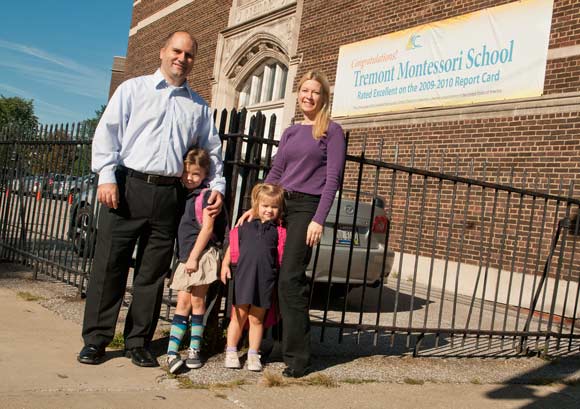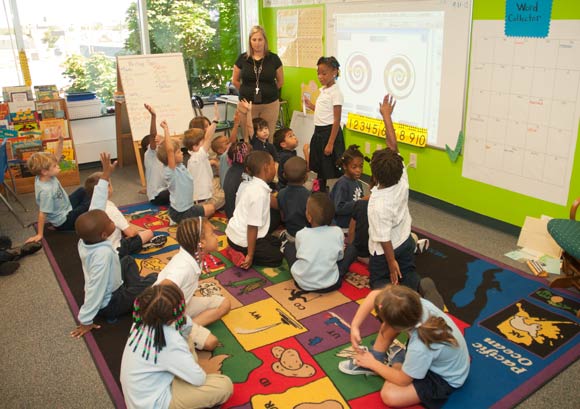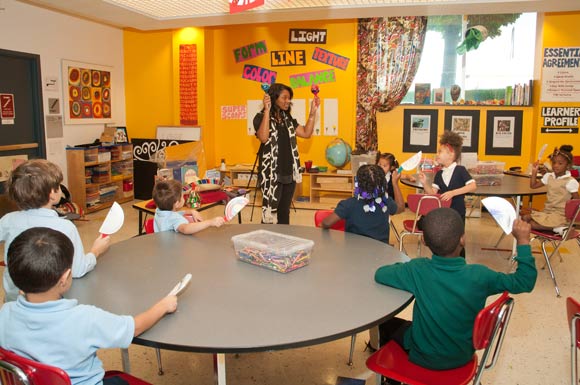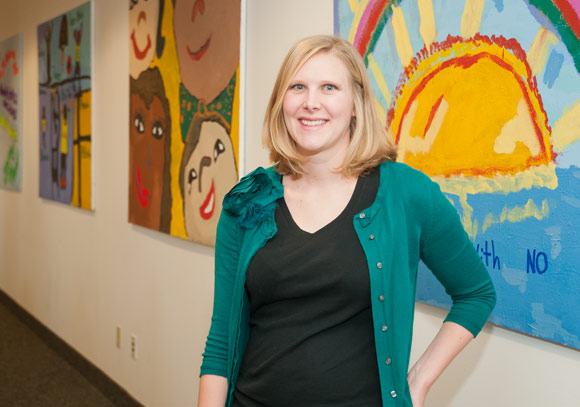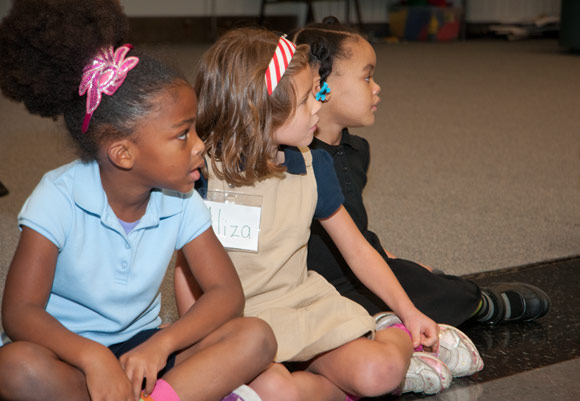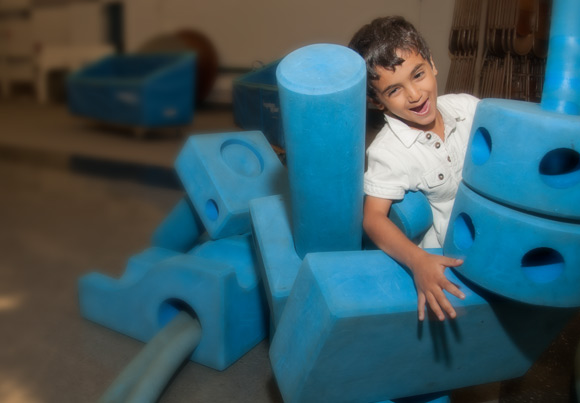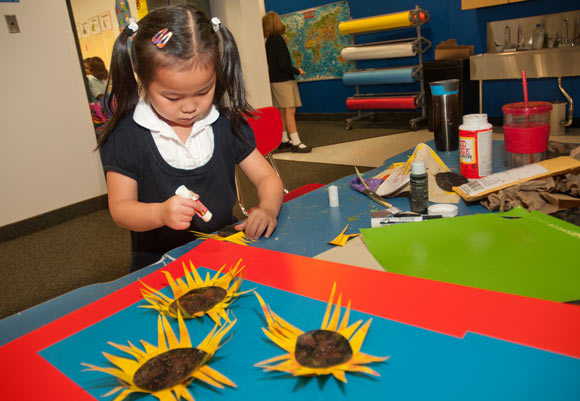high-performing public schools plus progressive reform equals better choices for cleveland families
Within the past decade, over 30,000 students have fled the failing Cleveland Municipal School District (CMSD) to charter schools, private schools or higher-performing districts.
Yet in recent years, CMSD also has opened 14 new high-performing public schools that are rated Excellent or Effective by the State of Ohio. Although it comes on the heels of painful school closures, the district’s 2010 Transformation Plan is having a positive impact.
“The goal is to have high-quality education options in every Cleveland neighborhood,” said Ann Mullin, Senior Program Officer for Education at the Gund Foundation, during a recent forum on the schools. It was hosted by Greater Cleveland Congregations, a nonpartisan coalition of faith communities and their partners in Cuyahoga County.
The creation of high-performing schools also is helping to attract and retain young, middle-class families in the city’s neighborhoods. While there always will be families who choose to relocate to the suburbs when their kids reach school age, a growing number of young, urban parents are now choosing innovative public schools.
“Demand is growing in high-performing schools, and the enrollment drop is slowing down,” said Mullin, citing the fact that there were over 500 applicants for 100 spots at John Hay High School in University Circle as one example of the growing demand.
“The presence of high-quality schools like Campus International and charter schools makes it easier to live in the city with children,” says Emily Muttillo, a Detroit Shoreway resident whose daughter Aliza is a kindergartener at Campus International. “I want to see more CMSD students have the opportunity to attend high-performing schools.”
The Cleveland Plan, approved this summer by state legislators, will make it more likely that urban parents will remain in the city by duplicating the success of high-quality public schools citywide.
Choosing a School
Finding a good school is not always easy, especially for city-dwelling parents. While some districts have many high-performing schools, Cleveland’s are scattered throughout the city, forcing many parents to seek schools outside their neighborhood.
An urban parent’s quest for a good school may include crisscrossing the city to look at various options, taking a risk on a new, experimental school, or entering a high-stakes lottery to win a coveted seat at a strong school. The process can be overwhelming.
“It was a topic of family discussion from very early on,” says Jeff Kipp, an Old Brooklyn resident whose two daughters, Shelby and Kendall, attend Tremont Montessori School. “We worked hard to make sure we didn’t fall back on the either/or option -- the closest school at the end of our street, or moving to a suburban community with good schools.”
After months of research, the Kipps chose Tremont because of its high ratings, child-centered Montessori curriculum, caring staff and diversity of kids from across the city. They were lucky enough to get into the school through the district’s open enrollment process. High-performing schools like Tremont Montessori often have waiting lists.
“We truly vetted schools and looked around,” says Kipp, who is Executive Director of Live Cleveland, an organization that promotes all facets of living in Cleveland’s neighborhoods. “We found that in the city, you have many more options.”
Yet navigating those options can be a bewildering process. Emily Muttillo found the search for a good school to be all-consuming, but she’s thrilled with the choice she made. Campus International, created in 2010 in partnership with Cleveland State University, employs an International Baccalaureate curriculum in which every student learns Chinese.
“The school was bright and colorful with lots of student artwork on the walls,” Muttillo recalls of her first visit. “The classrooms were stocked with supplies and most had smart boards. It didn’t feel like what I thought a Cleveland public school was going to feel like.”
Getting there required diligence. She almost missed the deadline to enter the lottery for a seat at Campus International because it was not well promoted. “You have to actively seek out information about how to get your kids into the premier schools,” she says.
Kipp’s family also hit bumps in the road when Tremont’s Montessori-trained teachers were laid off due to budget problems and replaced with non-Montessori-trained staff. That problem is now being corrected thanks to changes within the district, says Kipp.
High-Performing Schools
Cleveland’s high-performing schools are drawing families from across the entire city -- and even suburbanites who are choosing such top schools over ones closer to home.
Campus International has such a strong reputation that it now draws 30 percent of its students from the suburbs. Some of the parents here also work at Cleveland State University. CSU’s Department of Education lends resources to help the school.
One of the reasons for the school’s success, says principal Julie Beers, is that she has had the ability to hire her own teachers.
“The opportunity to hire every teacher at the school was something I couldn’t pass up,” she says of her decision to leave another district to accept this challenge. “Teachers make the greatest difference in a school.”
On a recent weekday morning, Campus’s hallways were filled with diverse groups of students reading, working on computers or reciting Mandarin phrases with a teacher.
Once a week, the day here opens with a school-wide meeting in which student achievement is recognized. There’s also a weekly weather report given by a student whose passion in meteorology has earned him the title of campus “weatherman.”
“If a child goes up a level in reading or math, then we’re going to celebrate that success,” says Beers. “We have a very high level of student engagement here.”
Danielle Rini Uva is a North Collinwood resident who says she couldn’t have imagined sending her six-year-old son Sam to a Cleveland public school until she discovered Campus International. “Now we’re taking this wonderful, amazing risk together.”
The Cleveland Plan
To move the schools forward, Cleveland Mayor Frank Jackson and Cleveland schools CEO Eric Gordon have rolled out a far-reaching initiative dubbed “The Cleveland Plan.”
The plan represents an ambitious effort to accelerate the transformation of Cleveland’s schools. School officials have long been frustrated by union rules which require the district to lay off teachers based solely on seniority, rather than performance.
The Cleveland Plan, which won hard-fought approval by state legislators this summer, allows CMSD to make layoff decisions based on teacher effectiveness rather than seniority alone, award merit pay to top teachers and create longer school days.
The plan also aims to spur greater parental involvement by requiring parents to attend at least one school meeting per year. For the first time in state history, the Cleveland schools will also share local resources with select high-performing charter schools.
To support the plan and prevent budget cuts, Cleveland residents are being asked on November 6 to vote for a 15 mill levy that will cost the average homeowner $300 per year. School reform advocates say it’s necessary to pass the levy to continue the district’s progress. The city schools have not passed a new levy since 1996.
“This is not a forever tax,” said Mullin, pointing to some promising polls suggesting that Clevelanders may be convinced to vote for the levy based on progress they’re seeing within the district. “There’s a sunset built into the levy after four years, and the community can say then, in that short period of time, if it’s working.”
Yet urban parents and school reform advocates fear that high-performing public and charter schools will only serve to siphon off more motivated students from those without strong parental advocates -- creating a district divided along lines of social resources.
Yet CMSD leaders have said their goal is to spread the success of high-quality schools citywide. They point to the growing cadre of good schools as evidence that it’s working.
For their part, these urban parents believe that the only way forward for the troubled Cleveland schools is to build on the success of innovative schools that are working.
“I’m going to vote for the levy because I want my daughter’s school to have the resources that it needs to be successful over the long-term,” says Muttillo.
Good schools are also critical to revitalizing Cleveland’s neighborhoods. “People tell me every day, ‘If you want the city to do better, you’ve got to fix the schools,’” Kipp says. “This will make the city more attractive so people move in instead of moving out.”
Photos Bob Perkoski


